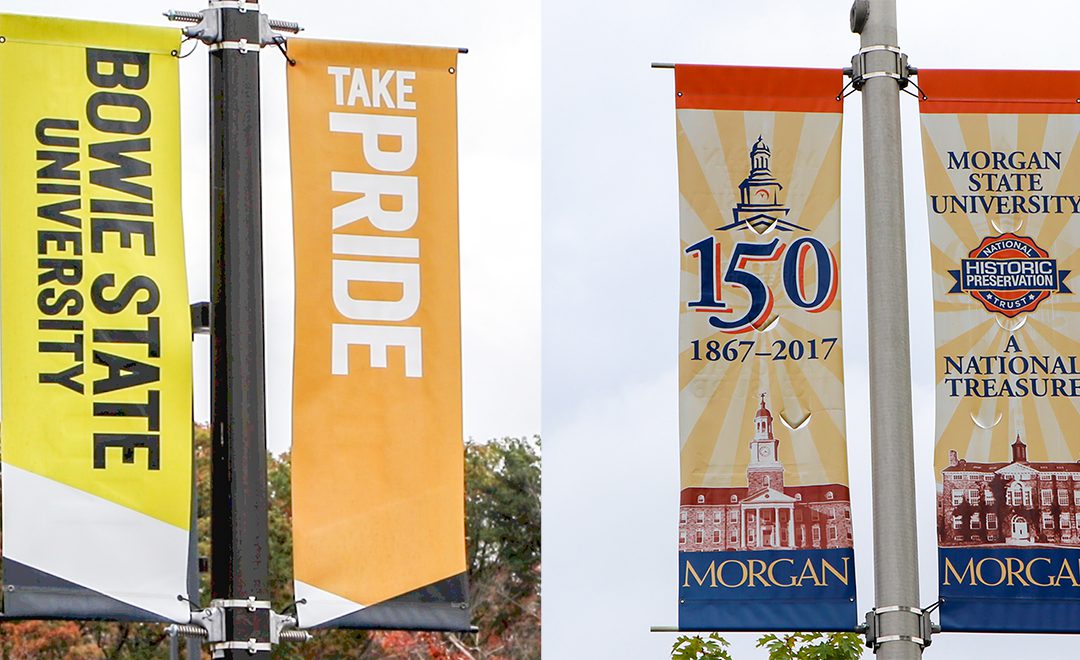BALTIMORE, MD — With the Nov. 3 election nearly here, students at historically Black colleges and universities in Maryland have created unconventional initiatives to encourage voter mobilization on their campuses despite the COVID-19 pandemic.
Morgan State University Student Government Association President Alexander Freeman stressed the importance of voting among all young people in this election. Morgan State, in Baltimore, has a student population of about 7,700 students, making it the largest HBCU in Maryland.
“It’s really critical that we go out and vote,” Freeman said. “Everything that we’re doing now is to benefit those that are going to come after us.”
Freeman came to America as a refugee from Liberia. This year’s election is the first time he is eligible to cast a vote in a U.S. presidential election.
“‘Wow, I just voted,’” he remembers thinking when he filled out his ballot.
Alexander Freeman describes why voting is important to him. (India Walton/MNS)
Tevon Blair, co-founder of the non-profit organization Xceleader, focused on cultivating the next generation of student leaders at HBCUs. They created an initiative called Vote HBCU, a civic engagement program to increase voter turnout and voter education among HBCU students.
Blair’s organization created a voter registration challenge focused on increasing the number of registered voters who are HBCU students, alumni and supporters.
“We have to think about our future; the future of our children and our grandchildren,” Blair said. “You should vote simply because you have the access to vote.”
Tevon Blair talks about Vote HBCU, an initiative geared towards increasing voter turnout. (India Walton/MNS)
In his role as SGA president for Morgan State, Freeman was eager to organize events that would get students on his campus registered to vote and actively voting. When he found out that he was elected into his position, he had a bunch of ideas to get students on campus active in the election. Due to the COVID-19 pandemic, reality set in that things were going to look different for the fall semester, so he had to shift gears. Freeman, along with about 200 student representatives at HBCUs across the country, participated in the Vote HBCU summit and said that the program helped him to find ways to keep his peers engaged in this election even though his university opted for remote instruction with extremely limited on campus learning.
“Not just on a student level, but on an administrative level, we are all working together to make sure that students and residents of Baltimore City are registered to vote,” Freeman said.
Thirty miles away at Bowie State University, Melody Arrington, SGA Political Action and Community Outreach Chair, said she has been providing a voter registration QR code at every event held on campus but that she has had to find creative ways to keep the student body engaged. Hosting events on Instagram and Zoom, providing details about voter education, video promotions to discuss the importance of voting and showing the people elected and appointed as student body representatives actively voting – were just a few ways Bowie State has kept their students engaged despite pandemic restrictions.
Melody Arrington discusses getting involved in political issues on the local and state level. (India Walton/MNS)
Sen. Kamala Harris, the Democratic vice-presidential nominee, is a graduate of Howard University, an HBCU in Washington, DC.
Arrington said she thinks Harris is a ‘complex woman’ but that her representation as Black woman is questionable since she was raised by her mother and grew up in an Indian American household.
“I can appreciate representation, but it’s not everything. Age and her womanhood are important, not her blackness,” Arrington said.
Others feel that Harris’ representation on the ballot is positive for the HBCU and Black communities, especially for the younger Black female generation.
Freeman compared Harris being on the ballot to having a birthday the week after Christmas.
“Christmas is her being the first woman and then she’s Black,” Freeman said. “The birthday is the potential she now has. The work that she (will do) as vice president will prepare her if she decides to run again as president.”

